Recycled Asphalt Driveway
Recycled Asphalt Driveway Benefits: Cost-Effective and Eco-Friendly Options
A driveway provides the first impression of a home to visitors and passersby, and many homeowners are turning to recycled asphalt as a cost-effective and environmentally friendly option. Recycled asphalt driveways are made from reclaimed asphalt pavement, which reduces the need for new materials while providing a durable surface. Often, the appearance of recycled asphalt is not as dark as new asphalt, which can be a unique aesthetic preference for some homeowners.
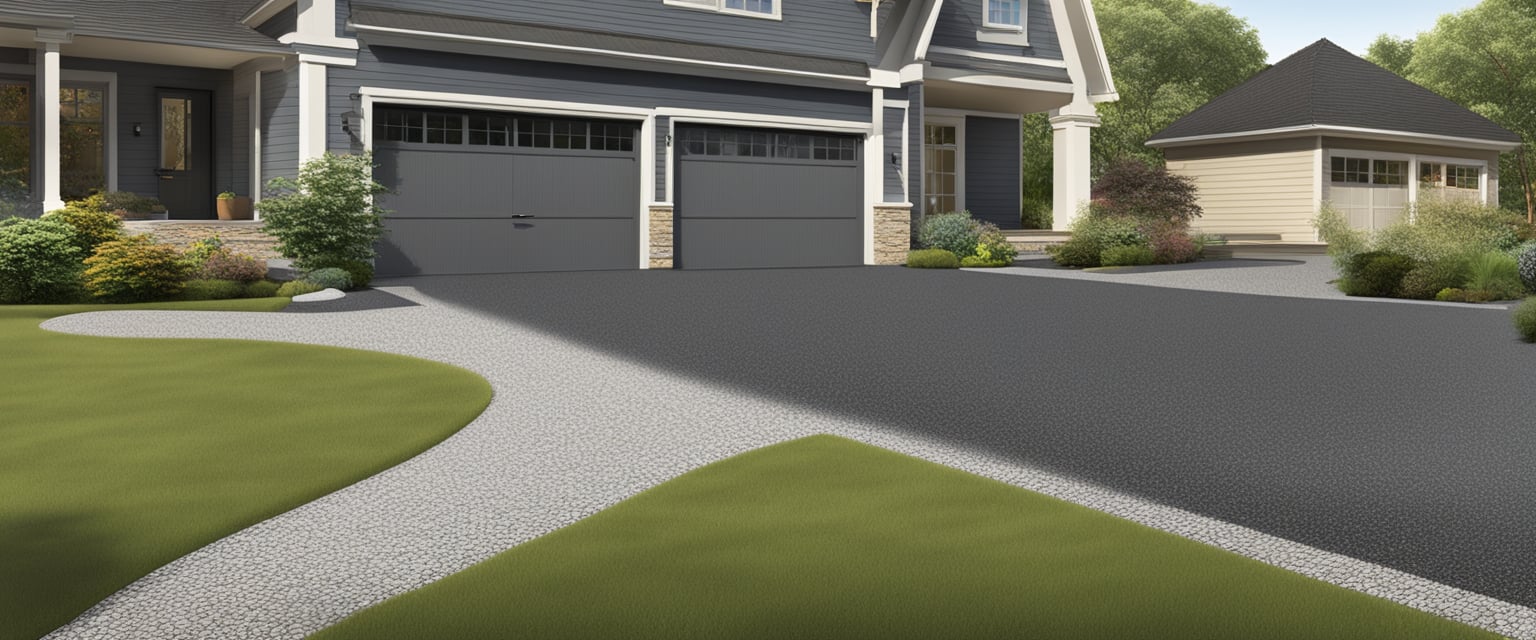
While traditional asphalt contributes to CO2 emissions through the manufacturing process, recycled asphalt uses existing materials, thus it is considered a greener alternative. It can be a way to extend the life of asphalt without the higher costs associated with new materials. Despite misconceptions, recycled asphalt can harden over time and form a solid surface comparable to virgin asphalt. The proper installation and maintenance of a recycled asphalt driveway can increase its longevity, making it a competitive alternative to other driveway materials.
Key Takeaways
- Recycled asphalt driveways offer a greener alternative with a unique aesthetic.
- Proper installation and maintenance extend the lifespan of these driveways.
- Costs are often lower than traditional asphalt while providing similar durability.
Benefits of Recycled Asphalt Driveways
Recycled asphalt driveways offer a range of benefits, including being an eco-friendly choice, providing cost savings, and delivering durability. This section explores the specific advantages that make recycled asphalt an attractive option for homeowners and municipalities.
Eco-Friendly Approach
Recycled asphalt driveways contribute to environmental sustainability. By repurposing material that would otherwise occupy landfill space, they reduce waste and decrease the demand for virgin asphalt, which in turn lowers the environmental impact associated with mining and asphalt production. The use of recycled asphalt helps conserve natural resources and decreases carbon emissions from the production processes.
Cost-Effectiveness
Choosing a recycled asphalt driveway can lead to significant cost savings. It is more affordable than using completely new, or “virgin,” materials because it requires less raw material, reduced transportation costs, and lower energy consumption in production. This cost-effectiveness is often a pivotal factor why homeowners and developers opt for recycled asphalt in their projects.
Durability and Lifespan
Recycled asphalt is known for its durability and long lifespan. Properly installed and maintained, a recycled asphalt driveway can last for many years, providing a sturdy and reliable surface. This material also stands up well to various weather conditions, and it can be rejuvenated periodically with sealant applications to extend its functional life, ensuring ongoing robustness and performance.
Materials and Composition
A recycled asphalt driveway consists of specific materials that include reclaimed asphalt pavement, aggregates, and residual bitumen. This blend provides a stable and enduring surface suitable for vehicular traffic.
Recycled Asphalt Characteristics
Recycled asphalt, often referred to as reclaimed asphalt pavement (RAP), typically includes crushed stone, gravel, and sand bonded with bitumen, which is the binder that originally held the pavement together. As these materials are reclaimed from older asphalt projects, their quality may vary but usually remains high enough to be re-used. The bitumen in the RAP maintains its adhesive properties, which facilitates a cohesive blend when reused in new paving projects, including driveways.
Aggregate Types in Recycled Asphalt
In recycled asphalt, the aggregate forms the bulk of the composition. This includes various grades of sand, gravel, and crushed stone. The size and quality of the aggregates play a crucial role in determining the durability and load-bearing capacity of the finished surface. Sometimes, additives such as asphalt shingles may be incorporated to improve the performance of recycled asphalt. The combination of these materials results in a driveway that is quite comparable to one made of new asphalt, as it retains much of the original material’s structural integrity.
Designing Your Recycled Asphalt Driveway
Proper design is essential for the longevity and functionality of a recycled asphalt driveway. Specific size and depth are critical, as is ensuring suitable drainage and a stable sub-base. These considerations dictate not only the aesthetic appeal but also the structural integrity of the new driveway.
Size and Depth Considerations
The size of a driveway must accommodate the homeowner’s needs, whether it’s for single or multiple vehicles. Typically, a standard driveway width is about 10 to 12 feet per vehicle, allowing comfortable entry and exit. As for the depth, recycled asphalt driveways usually require a layer of 4 to 6 inches of compacted millings. This thickness ensures a solid surface that can withstand regular vehicle traffic without significant degradation.
Drainage and Sub-Base Preparation
Effective drainage is crucial to prevent water accumulation, which can lead to erosion and deterioration of the asphalt surface over time. A slight incline, typically a minimum gradient of 1% away from structures, aids in directing water runoff.
Preparing the sub-base is just as essential and involves removing topsoil to reach a stable soil layer. Once reached, it’s recommended to install a layer of aggregate material, like crushed stone, to a depth of 6 to 8 inches. This provides a sturdy foundation for the recycled asphalt and facilitates proper drainage beneath the new driveway. Compact each layer systematically before adding the asphalt to ensure maximum stability and longevity.
Construction Process
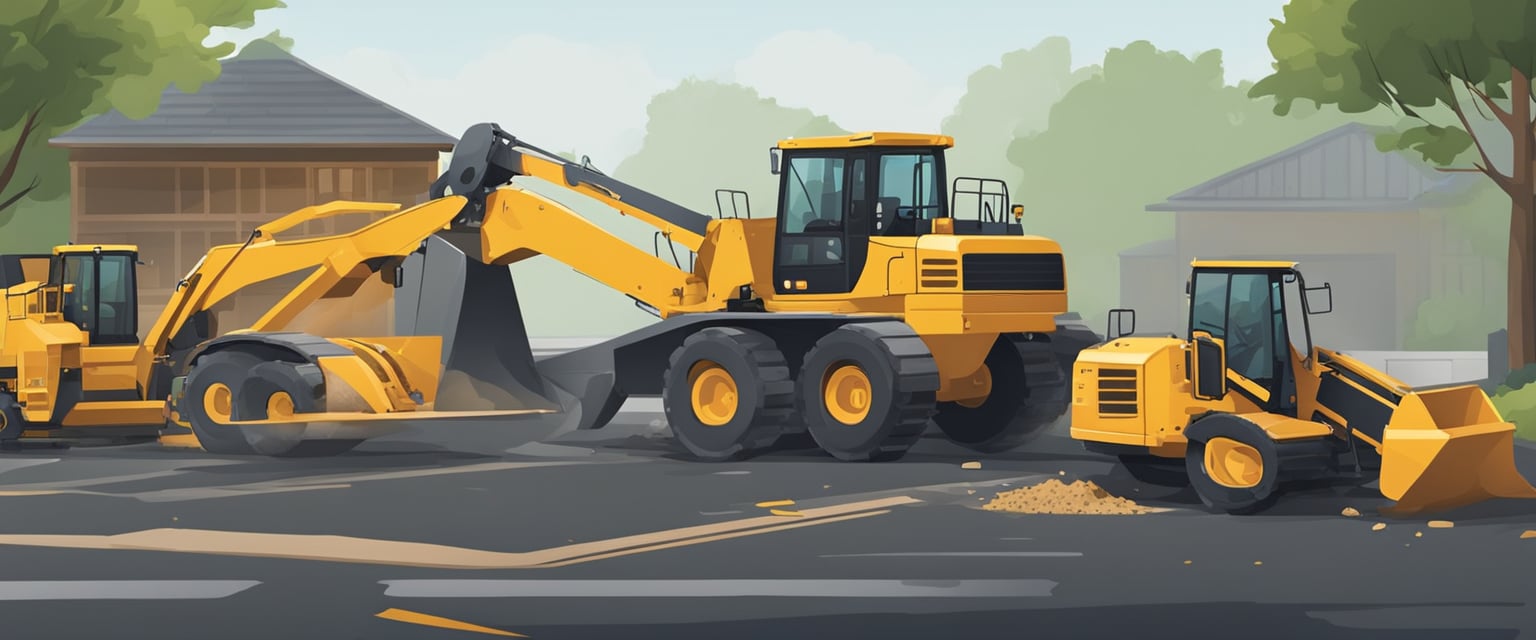
The construction process of a recycled asphalt driveway involves meticulous planning and execution to ensure durability and quality. It begins with the removal of the existing surface and ends with quality assurance checks.
Milling and Removal
The first step in constructing a recycled asphalt driveway is milling, where specialized machinery, known as an asphalt milling machine, removes the top layer of existing asphalt. This material is then transported to a recycling facility where it’s processed and reborn as usable aggregate.
Installation Steps
Once milling is complete, the installation phase commences. Laborers lay down the recycled asphalt and use a steam roller to compact the material, ensuring a stable and flat surface. Steps include:
- Grading and sloping the surface for proper drainage.
- Applying a binding agent, if necessary, to enhance adhesion.
- Distributing the recycled asphalt evenly across the prepared base.
- Compacting the material with a steam roller to form a solid, smooth driveway.
Quality Assurance
Quality control is crucial to the longevity of the driveway. During and after installation, technicians conduct tests to check for proper compaction, thickness, and overall quality of the recycled asphalt. Any issues are addressed promptly to ensure the integrity of the construction.
Maintenance and Repair
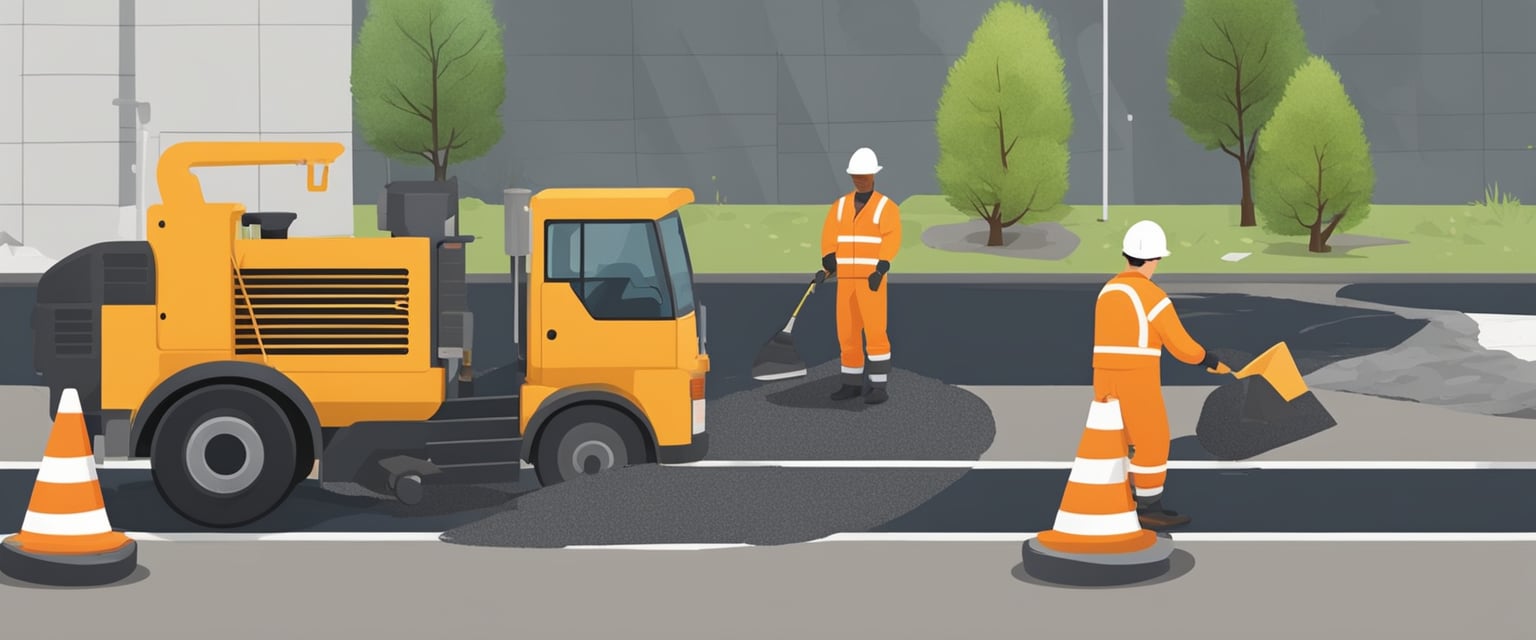
Maintaining a recycled asphalt driveway is essential to prolong its lifespan and ensure its durability. This section provides concrete guidance on addressing common issues and preserving the integrity of the driveway.
Potholes and Cracks
Potholes and cracks can often appear in a recycled asphalt driveway due to weathering and wear. They should be promptly repaired to prevent further damage. Small cracks can generally be filled with a suitable crack filler, while larger potholes may need patching material that is typically compacted to create a level surface.
Sealing and Resealing
Applying a sealcoat to a recycled asphalt driveway not only protects the surface from oxidation and erosion but also helps maintain its aesthetic appeal. Sealing is recommended every three to five years, depending on traffic and weather conditions. The process involves cleaning the surface thoroughly before applying the sealant to ensure proper adhesion.
Long-Term Maintenance
For long-term maintenance of a recycled asphalt driveway, it is advisable to follow a routine schedule:
- Regular cleaning to remove debris
- Periodic inspections to catch and address damages early
- Avoiding the spillage of chemicals and oil that might degrade the asphalt
A well-maintained recycled asphalt driveway remains low maintenance compared to other materials, and with proper care, it can provide a durable and cost-effective solution for homeowners.
Comparisons and Alternatives
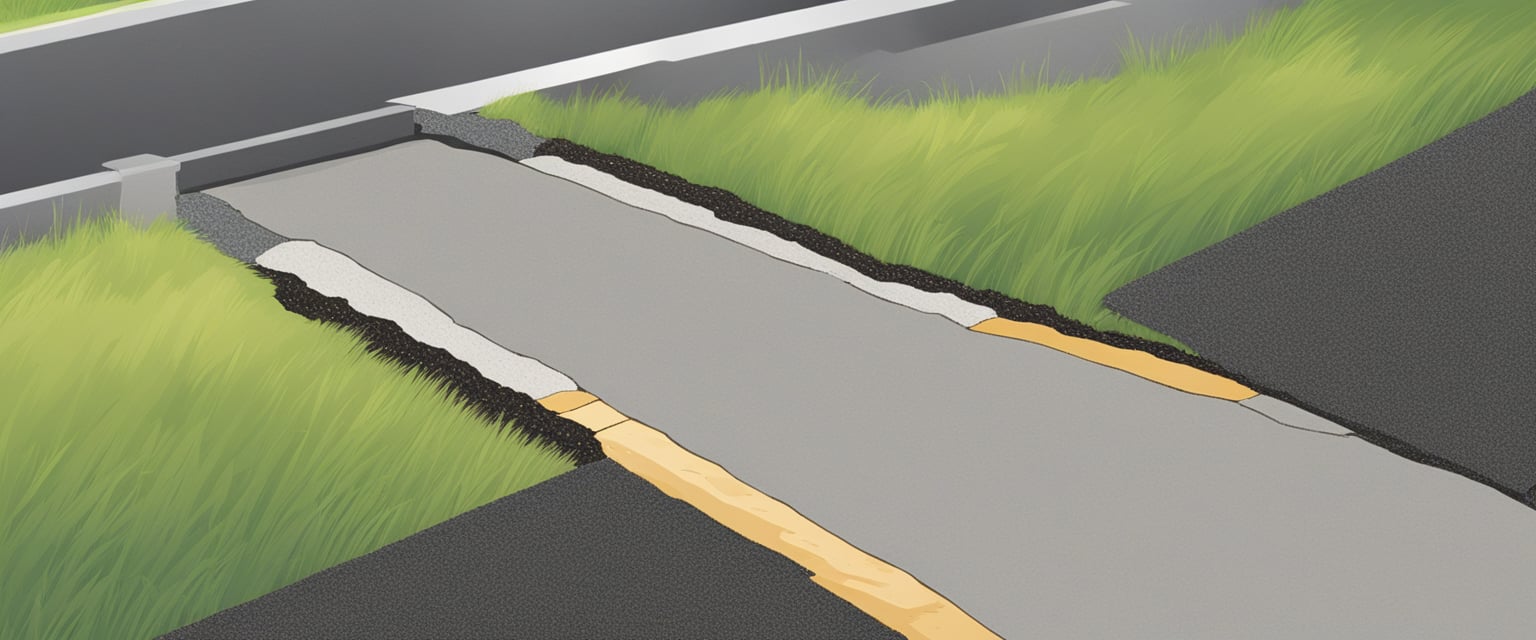
When considering paving options, homeowners and contractors often compare recycled asphalt to other materials. Recycled asphalt offers economic and environmental benefits, while virgin asphalt and concrete provide alternative choices with their own unique properties.
Recycled vs. Virgin Asphalt
Recycled asphalt is known for being a cost-effective and eco-friendly material due to the repurposing of existing asphalt. By reducing the need for new material production, it conserves resources and lowers greenhouse gas emissions. Compared to virgin asphalt, which requires more oil, labor, and work hours, recycled asphalt presents a sustainable choice for driveways.
- Durability: Recycled asphalt binds to form a solid surface, potentially yielding a longer lifespan.
- Installation: Simpler and faster than laying virgin asphalt, leading to reduced labor costs.
- Cost: Generally lower for recycled asphalt due to the reduced production expenses.
On the other hand, virgin asphalt typically provides a smoother finish and a more uniform appearance than its recycled counterpart. It also might be considered for areas with heavier traffic or greater environmental exposure where maximum longevity and durability are crucial.
Recycled Asphalt vs. Concrete
Making a choice between recycled asphalt and concrete can depend on several factors including aesthetics, climate, and intended use. Concrete offers a rigid, durable surface that can last many years with proper maintenance, but it also comes with a higher initial cost.
- Maintenance: Concrete may require less frequent repairs, but is more costly to fix if it cracks.
- Climate: In areas with freeze-thaw cycles, concrete can be susceptible to cracking, while asphalt is more flexible and could be more resilient.
Depending on the project, some may opt for concrete due to its longer lifespan and the modern look it provides. However, for those prioritizing environmental considerations and initial expense, recycled asphalt stands out as a compelling alternative to traditional concrete driveways.
Cost Analysis
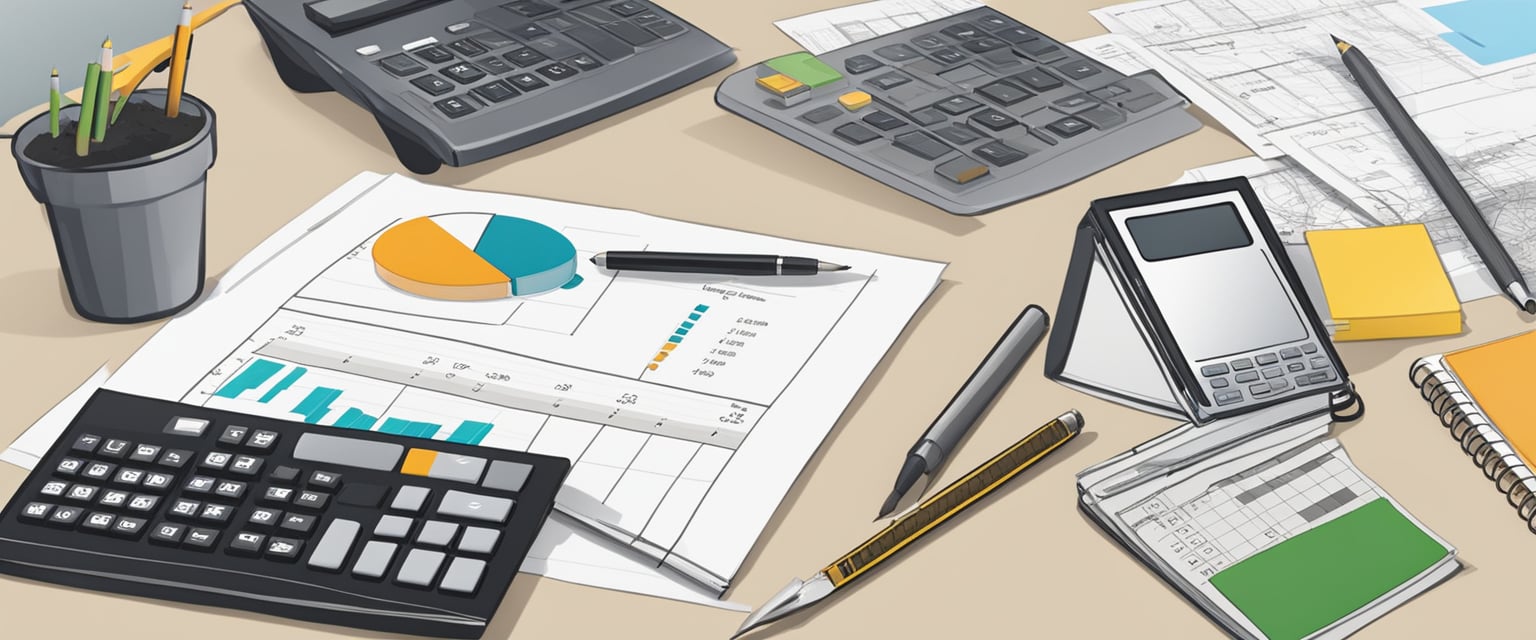
When evaluating the financial implications of opting for a recycled asphalt driveway, one must consider the initial outlay, ongoing maintenance expenses, and the long-term costs stemming from its longevity and potential replacement needs.
Initial Investment
The initial cost of a recycled asphalt driveway is notably more affordable compared to traditional asphalt surfaces. The expense primarily comprises the cost of materials and labor. A comprehensive lifecycle cost analysis indicates that an urban highway section sees significant savings when using recycled materials due to lower raw material costs. As pointed out by a Lifecycle Cost Analysis, initial costs are reduced when employing recycled asphalt, despite the hot Middle Eastern climate.
Maintenance Costs
Maintenance for recycled asphalt driveways usually involves periodic applications of a sealant to maintain the surface’s integrity and appearance. Over time, this cost is balanced by the cost-effectiveness of reduced maintenance frequency compared to other materials. The labor cost for maintenance can vary, but the use of sealant is generally a straightforward process, resulting in predictable expenses.
Longevity and Replacement Costs
Recycled asphalt driveways boast considerable longevity, with a lifespan that can be competitive with new asphalt surfaces. The replacement costs, consequently, tend to be incurred less frequently. It’s key to note that when replacement is necessary, the costs will likely be lower than the original installation, since the base and some of the materials might be reused. HomeAdvisor suggests that, while prices may vary, the cost of recycled asphalt is markedly less than new asphalt, implying a cost-efficient choice in the long term.
Environmental Impact
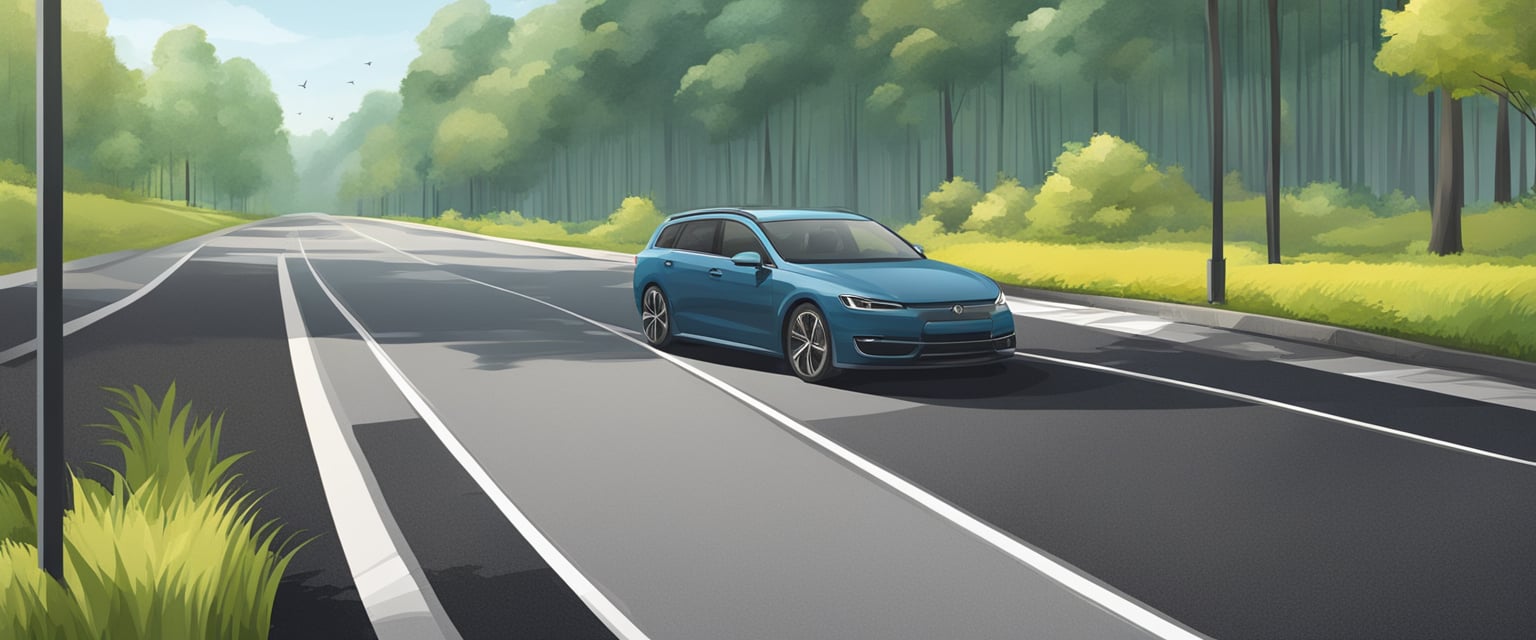
Recycled asphalt driveways contribute significantly to environmental sustainability by reducing landfill waste and optimizing energy usage.
Reduction of Landfill Waste
Recycling old asphalt for the construction of driveways importantly reduces the amount of construction material that ends up in landfills. By repurposing reclaimed asphalt pavement (RAP), less landfill space is consumed, which is a finite resource. Additionally, it diminishes the need for quarrying new materials, thereby preserving non-renewable resources.
Energy Consumption and Efficiency
The recycling process of asphalt requires less energy compared to the production of new asphalt material. This efficiency is because generating RAP involves lower temperatures, which means less fossil fuel consumption and lower emissions. In this manner, recycled asphalt driveways exemplify an energy-smart choice that supports the principles of sustainability and the use of renewable resources.
Aesthetic Considerations
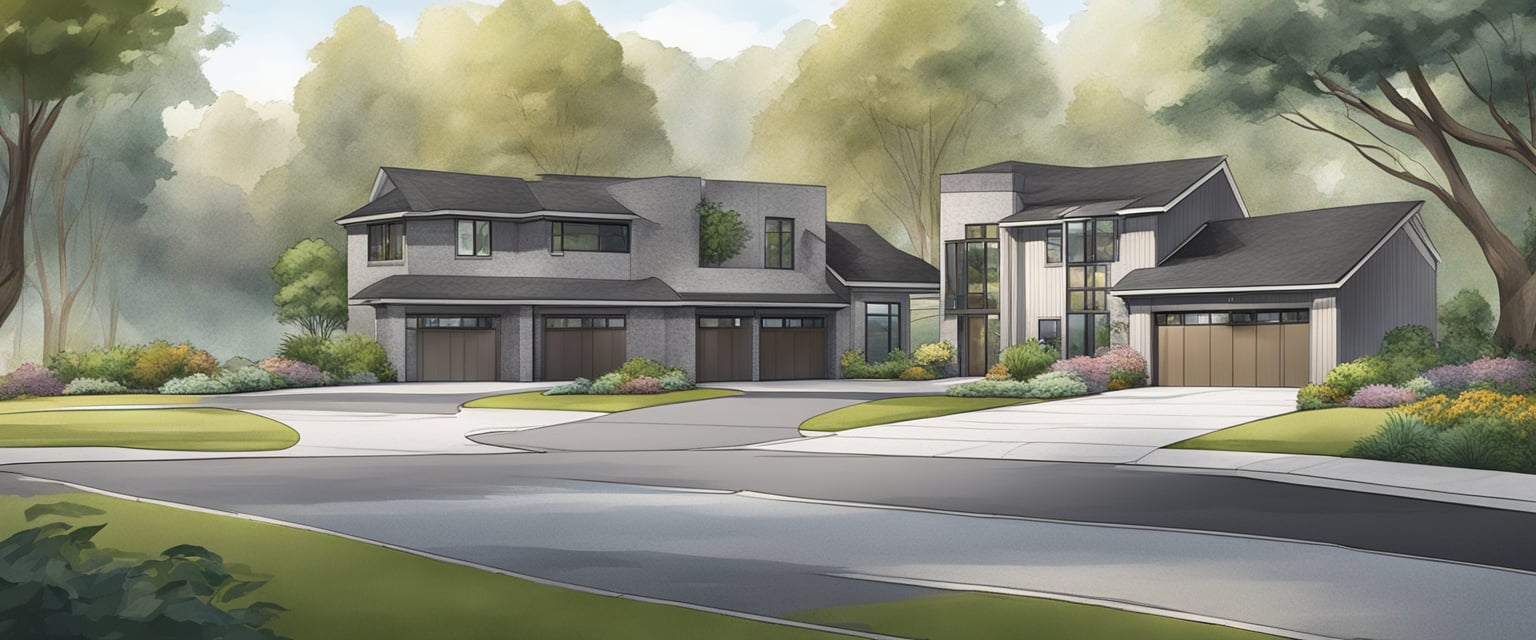
When exploring the aesthetic aspects of recycled asphalt driveways, homeowners should consider the material’s inherent color variations and potential for customization. These factors both play a pivotal role in the driveway’s overall appearance.
Color and Appearance
Recycled asphalt typically presents a more uniform look compared to other materials, offering an appearance consistent with traditional asphalt driveways. Its color generally ranges darker shades of gray to black, which may fade over time to a more subtle, matte finish. The mix includes aggregate, sand, and fillers, which blend to create the familiar pavement color homeowners find attractive.
Customization Options
Unlike some other materials, recycled asphalt offers limited customization in terms of color. However, it can be complemented with decorative edging or borders to enhance its visual appeal. Homeowners can choose from an array of materials for edging, such as bricks or stone, to introduce additional color and texture to the driveway’s edges.
Regulatory and Quality Standards
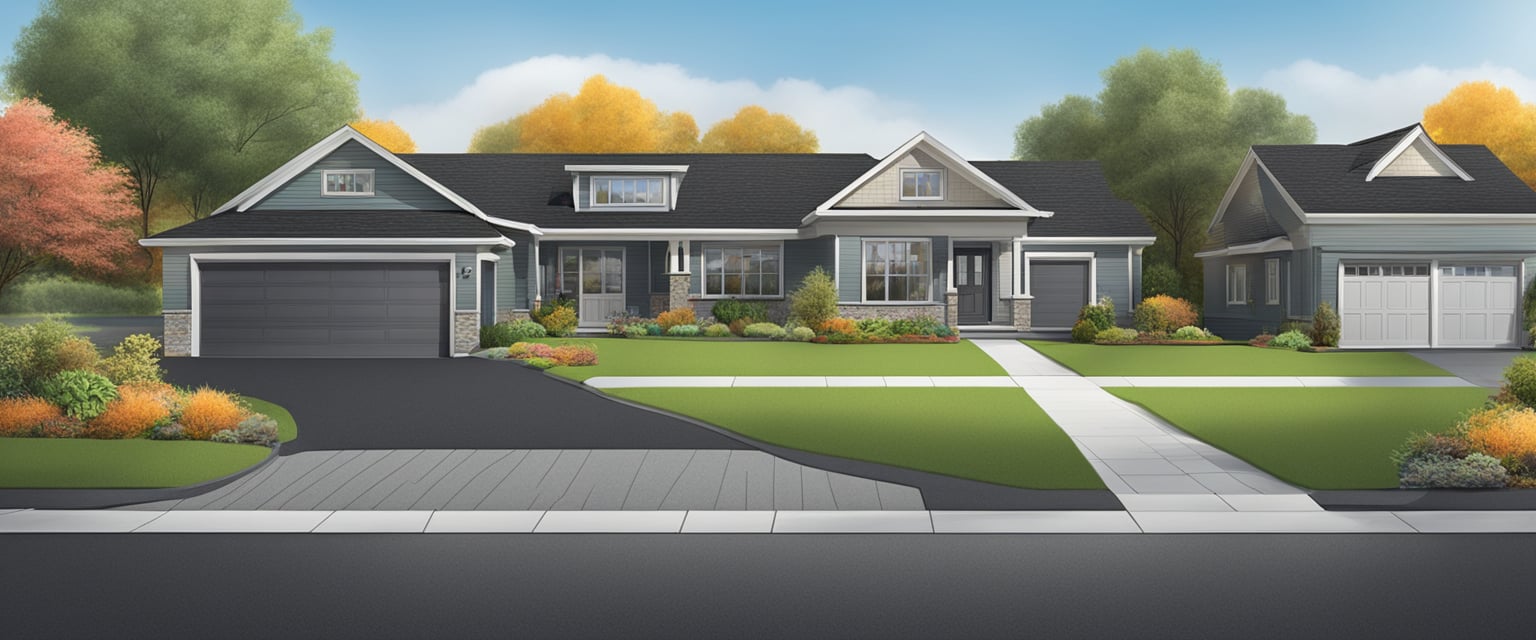
Recycled asphalt driveways are subject to various regulations and standards aimed at ensuring environmental compliance and performance quality. These regulations ensure that recycled materials meet specific criteria for safe and effective use in paving.
United States Regulations
In the United States, the Environmental Protection Agency (EPA) and state agencies provide guidelines for the use of reclaimed asphalt pavement (RAP) in order to maintain environmental responsibility. The Federal Highway Administration (FHWA) plays a crucial role by supporting the use of RAP, underlining that recycled asphalt pavements must be cost-effective, environmentally responsible, and perform well.
Highway Construction Standards
In regards to highway construction, the standards for quality asphalt pavement are established by organizations such as the American Society for Testing and Materials (ASTM). ASTM’s road and paving standards provide comprehensive specifications regarding the material, physical, and mechanical properties required for road surfaces and pavements to ensure durability and safety.
- Material Specifications: Includes gradation, binder content, and quality of RAP.
- Physical and Mechanical Properties: Encompasses stability, density, and resistance to deformation.
- Performance Criteria: Assesses long-term durability and suitability for highway use.
The adherence to these precise standards is imperative for the construction and maintenance of highways to ensure public safety and longevity of the pavements.
Selecting a Contractor
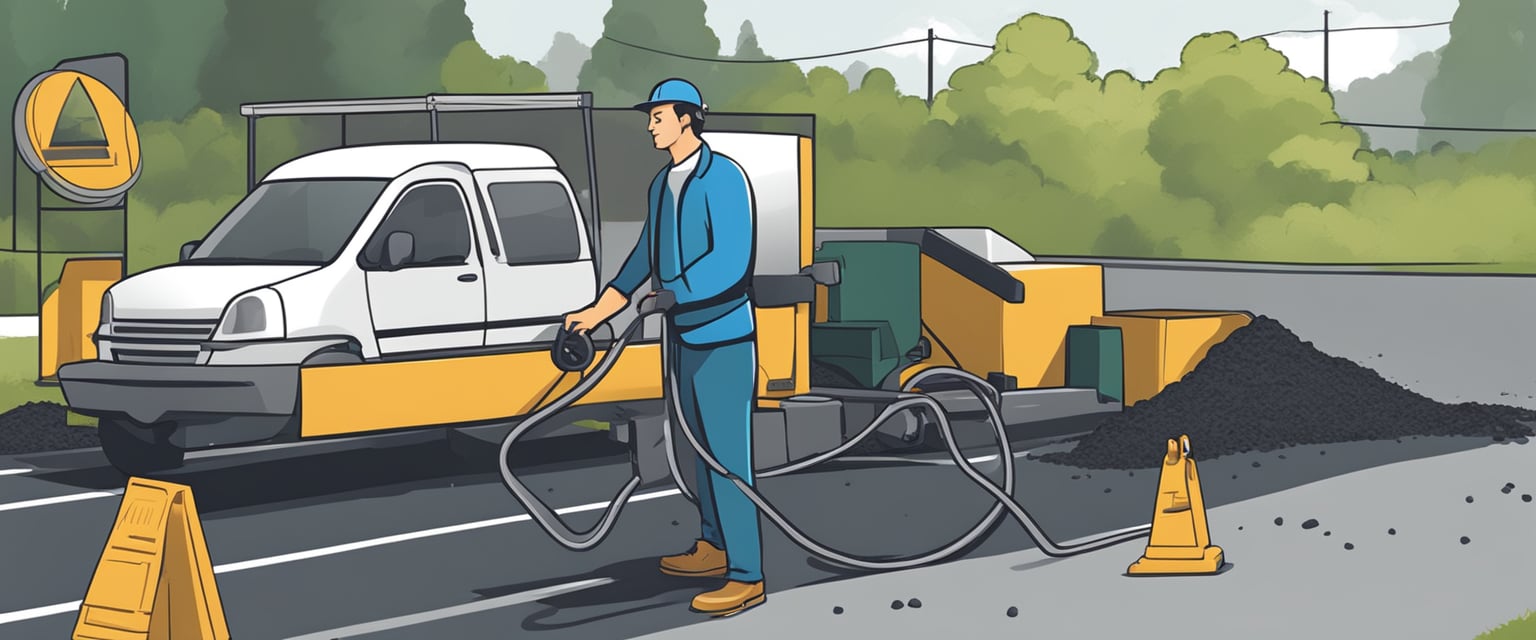
When considering the installation of a recycled asphalt driveway, the selection of a reputable contractor is paramount. The durability and appearance of the driveway are largely dependent on their skill and expertise.
What to Look For in a Contractor
Choosing a contractor for a residential drive or parking lot should be based on thorough research and credentials.
- Experience: Seek a contractor with robust experience specifically in recycled asphalt driveways.
- Licensing and Insurance: Confirm that they are licensed to operate in your area and carry insurance to protect against any accidents or damage.
- Past Work Samples: Request a portfolio of their previous installations.
- References or Reviews: Look for testimonials from past clients or reviews that highlight their reliability and quality of work.
- Material Quality: Ensure they use quality materials, which can make a significant difference in the longevity of a driveway.
- Professionalism: They should exhibit a professional demeanor, responding promptly and providing clear information.
Getting a Free Estimate
Before committing to a contractor, obtaining a free estimate is crucial.
- Detailed Proposals: A reputable contractor should provide a written estimate that outlines the scope of work, labor cost, materials, and timeframe.
- Clarification of Costs: Do not hesitate to ask for clarification on any part of the estimate to understand what you are paying for.
- Comparison: It’s advisable to get estimates from multiple contractors to compare cost and service offerings.
A contractor’s willingness to provide a detailed free estimate can be indicative of their transparency and customer service approach.
Frequently Asked Questions
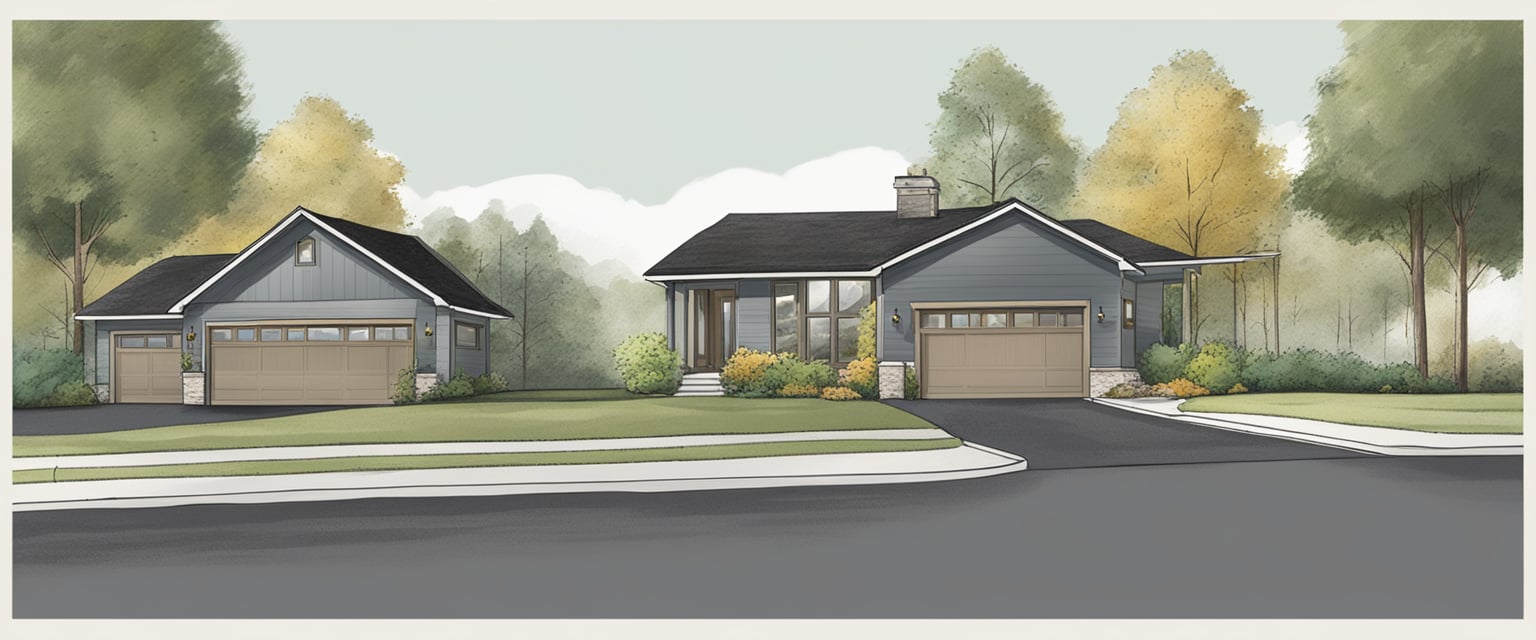
This section addresses common inquiries regarding recycled asphalt driveways, providing facts for those considering this material.
What are the potential issues I may encounter with a recycled asphalt driveway?
One may face issues such as a lesser quality compared to new asphalt, variable composition affecting durability, and the possibility of it not compacting as uniformly. Inconsistent performance and potential drainage problems are also concerns individuals might encounter.
How much does it typically cost to install a recycled asphalt driveway?
The cost for installing a recycled asphalt driveway can often be less than traditional asphalt driveways due to lower material costs. Prices vary depending on the region and the project’s complexity but tend to range from substantially lower per square foot, making it a budget-friendly option.
What are the advantages and disadvantages of choosing a recycled asphalt driveway over traditional options?
Choosing a recycled asphalt driveway offers advantages like reduced environmental impact, lower cost, and faster installation time. However, there are disadvantages like potential quality inconsistency and shorter lifespan compared to driveways made with new asphalt materials.
Can recycled asphalt harden over time similar to new asphalt?
Recycled asphalt can harden over time, resembling the properties of new asphalt as it compacts and binds together. Exposure to weather elements and traffic can aid in this process, but this hardening may not be as uniform as new asphalt installations.
How can I find suppliers of recycled asphalt for driveway construction?
To locate suppliers of recycled asphalt, one can begin by contacting local paving companies, searching for construction material recyclers, or checking with municipal waste facilities that process reclaimed asphalt pavement (RAP).
What distinguishes recycled asphalt from traditional asphalt in composition and performance?
Recycled asphalt is composed of reclaimed asphalt pavement that has been processed and repurposed, which can result in varied composition and a more textured, less smooth finish. While it is often as durable as new asphalt in performance, the longevity might be affected by the original material’s quality and the recycling process it underwent.



